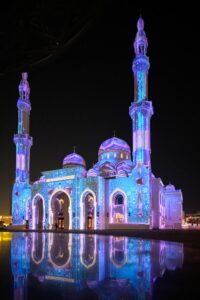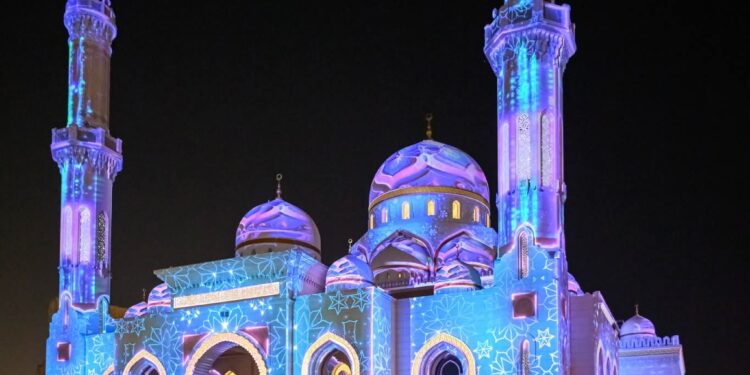
By Ibrahim Kegbegbe
The Muslim world today stands at a crossroads between pain and promise. Across continents, from the Middle East to Africa and Asia, nations that once served as cradles of Islamic civilization now groan under the weight of war, economic strangulation, and political instability. Gaza bleeds daily. Yemen remains a humanitarian wound. Sudan’s unity is a shadow of its past. Syria is still struggling to breathe. And in the Sahel, terror has disguised itself as religion, devouring innocent lives in the name of a faith that abhors violence.
While these crises deepen, one would expect that the global Muslim community—united by the principle of Ummah—would respond with compassion, dialogue, and strategic planning for collective renewal. But instead, much of the energy that could have been channeled toward rebuilding the pillars of Muslim progress is wasted in social media warfare—scholars versus scholars, sects against sects, and preachers tearing down one another for likes and followers.
Faith in Fragments
It is a painful irony: Islam, a religion built on unity and the brotherhood of humanity, now appears most divided in the digital age. The same platforms that could have been used to promote charity drives in Gaza, education initiatives in Africa, or peace diplomacy in Asia are now theatres of ego, rivalry, and cyber-piety.
Every disagreement becomes a trending hashtag. Every scholar becomes a suspect. Every differing view is met with accusations of heresy.
The result? The world watches as Muslims debate one another while their homes are being bombed and their economies drained. Faith is not being destroyed by unbelievers—it is being wounded by its own children.
The Lost Art of Collective Strategy
Historically, Muslim societies flourished when faith was coupled with intellect and unity. The Abbasid era in Baghdad, the golden age of Al-Andalus, the intellectual rise of Timbuktu—all were possible because Muslims invested in knowledge, trade, science, and diplomacy. They built schools, not echo chambers; they sought alliances, not divisions.
But today, the opposite seems true. Petty divisions have replaced intellectual partnerships. Short-term fame has replaced long-term vision.
In a world facing artificial intelligence, climate change, and global political realignments, Muslims are still arguing over sectarian superiority and personal interpretation of Hadith—issues that should have been settled by mutual respect and scholarly dialogue.
Africa and Asia: The Sleeping Giants
Africa and Asia, with their youthful populations and deep Islamic roots, could redefine the global future of Islam—if only unity, education, and purpose take the front seat. Nigeria, Egypt, Indonesia, Malaysia, and Pakistan are blessed with both human capital and faith-based institutions capable of leading a renaissance.
What the Muslim world needs now is a continental and intercontinental strategy—a coalition of thinkers, economists, and theologians working together beyond politics and personal recognition. We need Islamic think-tanks that do not only interpret scripture but also design blueprints for sustainable development, education reform, and economic cooperation among Muslim nations.
Faith must be seen not just as a spiritual commitment but as a developmental force.
The Way Forward
If Islam is to rise again as a global force for peace and progress, three things must happen:
1. Return to intellectual humility. Muslim scholars and preachers must embrace dialogue over dominance. The Prophet Muhammad (peace be upon him) led by persuasion, not by humiliation.
2. Invest in education and innovation. A literate and economically independent Muslim population is harder to exploit and easier to unite.
3. Build global solidarity. From Lagos to Lahore, Mecca to Mogadishu, Muslims must see themselves not as sects but as a single humanity with shared pain and purpose.
A Final Thought
The Qur’an warns, “And do not dispute and [thus] lose courage and your strength would depart” (Surah Al-Anfal, 8:46). Today, that verse is not just a caution—it is prophecy fulfilled before our eyes.
The enemies of Islam do not need to fight us; they only need to watch us fight ourselves.
Until Muslims rediscover the unity that once made them architects of civilization, the faith will continue to burn—not from outside attacks, but from the internal fire of ego, ignorance, and disunity.
READ ALSO:BREAKING: Tinubu Picks Kogi Scholar as New INEC Boss
History is calling again. Whether the Muslim world answers as a divided crowd or a united force will determine the future of Islam in Africa, Asia, and the world at large.

















